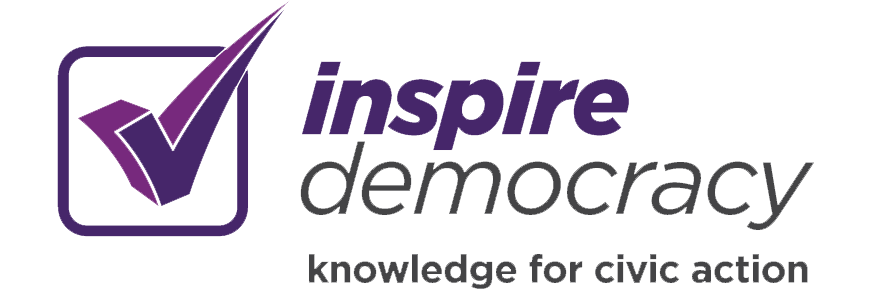

Congratulations! You're officially a confirmed candidate for the federal election. Now it's time to start planning your campaign.
There's a lot to think about when you're planning your campaign. Here are some ways to get started:
If you're a candidate for a registered political party, check in with your party for more help with planning your campaign.
A couple of days after you're confirmed as a candidate, the returning officer will host a briefing with all the confirmed candidates and their representatives in the electoral district. The goal of this briefing is to share important information about the different processes during the election. We strongly recommend that you attend the briefing.
Your team already includes an official agent (a mandatory position). It may also include a campaign delegate and/or an auditor. You might think about building a campaign team to help with the following tasks.

Your campaign manager oversees and supports everyone else on the campaign team. Here are a few things that the campaign manager can do for your campaign:

Signs are a big part of a campaign; they help voters learn your name as a candidate, and which party you represent (if you belong to one).
The sign team is responsible for putting out campaign signs on supporters' properties, with permission, and in allowed public areas. They also repair or replace damaged signs.

Before people can vote for you, they need to know what your campaign stands for. A strong communications team can help you with that.
Today, campaigns rely on new and traditional communication channels to get the word out about their candidates. You will want people on your communications team to be able to help you on these channels:

Confirmed candidates and their representatives have the right to canvass door to door and campaign in many residential areas and public places. Door-to-door canvassing can be a great opportunity to meet voters and hear their concerns. The main reason most campaigns run door-to-door canvassing is to ask and persuade voters to vote for them. It's also a good way to find out what issues are important to voters.
Closer to election day, the canvassing team can help voters:

As a candidate, you're allowed to be present at a polling station on election day. You or your official agent may choose to appoint other people to be your representatives (also known as "scrutineers") at polling stations and when the ballots are being counted. The representative's role is to observe the process to make sure that it is fair and transparent.
To appoint an individual to act as your representative, you or your official agent must complete the Authorization of a Candidate's Representative (EC 20020), available on the PESC portal or from the returning officer. Your representatives must bring a paper copy of this form to the first polling place they attend, where an election officer will swear them in and give them a Candidate's Representative Identification Badge (EC 20901).
If you go to a polling place or to the local Elections Canada office, you must go through the same process. You're counted as a representative where you're present.
The Canada Elections Act doesn't allow inside or on the outside of polling places items that show support for or opposition to a candidate or political party that is on the ballot. Examples of this include:
There are guidelines for candidates' representatives available on the Elections Canada website. They outline the duties and responsibilities of a candidate's representative at polling places and at the local Elections Canada office
There are many ways you can connect with electors to share your election platform and your reasons for running, and to fundraise.
During an election campaign, all political candidates and parties, as well as their supporters, need to follow certain rules about reaching out to Canadians.
Here are some important rules to keep in mind when connecting with electors.
During the election, you will be given the lists of electors for your electoral district. These lists contain the name, address and unique identifier number for each registered elector. It's important to protect their personal information. The Guidelines for Use of the List of Electors describes the best practices for how to use lists of electors. This is required by the Canada Elections Act.
All election advertising for candidates or registered political parties must state that the message has been authorized by the candidate's official agent or by the registered agent of the party. This is required by the Canada Elections Act.
Some election advertising may be added to an online registry or included in an advertising blackout period on election day. To learn more about election expenses and election advertising, see chapter 8 of the Political Financing Handbook for Candidates and Official Agents.
The Canada Elections Act details what candidates and their campaign team are allowed and not allowed to do with campaign signs and other partisan material during and between elections.
Each province or municipality may have their own laws on campaign signs, including when you can start placing them and when they must be removed. You and your campaign team are strongly encouraged to find out the rules for campaign signs in your electoral district.
The Canada Elections Act also outlines rules for posting and displaying partisan material (including campaign signs) in or around polling places.
Refer to the following interpretation note on the Elections Canada website: Posting and Displaying Partisan Material at Polling Places. This note explains where posting and displaying partisan material is allowed in and around polling places, and when material may be removed by election officers.
You may also see the FAQs on Elections - Election Signs on the Elections Canada website.
Calling electors is legal and is part of campaigning. This includes someone from your campaign making calls and robocalls.
Elections Canada does not give electors' telephone numbers to candidates or political parties. Parties and candidates get electors' phone numbers from another source, like a commercial data broker.
When calling electors, you must comply with the Canada Elections Act which, among other things, makes it illegal to:
Some companies and individuals must register with the Canadian Radio-television and Telecommunications Commission (CRTC) before making phone calls to Canadians during an election period. See the Voter Contact Registry for more information.
There are rules about political groups making phone calls to Canadians who haven't given their permission to be contacted. See the CRTC's Unsolicited telecommunications rules for more information.
Individuals and organizations must respect Canada's Anti-Spam Legislation when sending text messages and emails.
Before you begin contacting electors, review CRTC's guide How to Contact Canadians the Right Way.
As a confirmed candidate, you're allowed to enter certain public places and residential areas to carry out your campaigning and canvassing activities. We encourage your campaign team to call the building manager or landlord to facilitate a visit.
We recommend that you carry with you a copy of Access to Public Places and Residential Dwellings by Candidates and Their Representatives (EC 21011), a letter from the Chief Electoral Officer that explains the rights of access of candidates and their representatives. You can show this letter to the person who is responsible for the building (building manager or landlord) to explain that you have the right to canvass or campaign there. You'll get this letter from the returning officer, or you can download it from the Political Entities Service Centre (PESC) portal.
The following resources have more information about canvassing and campaigning, including the rights for you and your team:
You may also carry a copy of the Notice of Confirmation of Nomination that you received from the returning officer to show that you are a confirmed candidate.
If you or your representatives are refused access, you may contact the returning officer for assistance. If you believe that you were wrongly denied access for canvassing or campaigning may file a complaint with the Commissioner of Canada Elections.
Running an accessible and inclusive campaign means that everyone can participate in the electoral process.
According to Statistics Canada, in 2017, one in five of Canadians aged 15 years and over—about 6.2 million individuals—identified as having one or more disabilities.
See the Political Financing Handbook for Candidates and Official Agents and the Interpretation Note on Accessibility Expenses and Disability-Related Personal Expenses for more details.
Use the Accessibility Info sheet for Political Parties and Candidates to make sure that your campaign is accessible and inclusive.
You may be reimbursed for some of the expenses used to make your campaign accessible. Any time there's communication between a party, candidate or campaign and an elector, there could be an accessibility expense. You can get 90% reimbursed, with a maximum of $5,000 for eligible accessibility expenses.
Here are some examples of accessibility expenses:
If you're a candidate with a disability, you can request reimbursement up to 90% for certain disability-related personal expenses to help you run your campaign. This includes personal expenses related to your own disability or your care for a person with a disability.
Make sure you and your official agent know the rules on political financing.
The rules around political financing are included in the Canada Elections Act and deal with matters like money received through contributions, loans, transfers and fundraising activities, as well as your expenses. Make sure your official agent knows and understands the rules and obligations for political financing. Share this list of resources and training with your official agent.
There are other national organizations whose goal is to support people who want to run as a candidate.